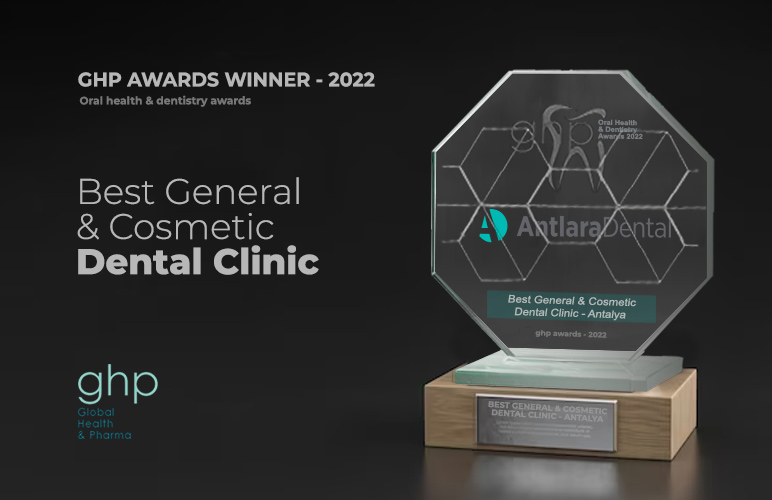
The number of Europeans choosing to travel to Turkey for dental treatments has skyrocketed in recent years. This trend has been particularly noticeable in the United Kingdom, Germany, Russia, and a host of other European countries. A report published by marketresearch.com, a research firm based in New York and London, underscores Turkey's remarkable rise and quality. According to the report, Turkey's healthcare system is ranked 23rd in the world, and health tourism in Turkey is expected to reach its highest level ever by 2028.
Looking at the history of modern medicine in Turkey, it is evident that its success in the field is not a mere coincidence. In Turkey, the health system, medical education, and hospitals have been consistently operational since 1850. Patients' rave reviews after returning from Turkey are more proof of the country's success. On the other hand, we can not help but notice the abundance of negative coverage of Turkey in various news outlets.

Admittedly, not all of these news stories are unfounded or biased. However, the widespread dissemination of a negative experience across social media platforms, alongside coverage in print and broadcast media, fosters the impression that there is a significant amount of news unfavorable to Turkey. In this article, we will thoroughly examine this issue, relying on statistical information and analytical methods to determine whether Turkey is the appropriate destination for treatment.
Understanding the Concerns: "Turkey Teeth Gone Wrong"
Turkey is primarily worried about the extensive crown treatments, particularly among younger patients. Dental crowns are an invasive treatment in which 60-70% of the tooth surface is removed from the tooth surface and then the tooth surface is covered. Nonetheless, concerning the quality of treatment, materials, hygiene, dentists' expertise, language barriers, treatment plans, and post-care issues, there have been virtually no documented complaints.
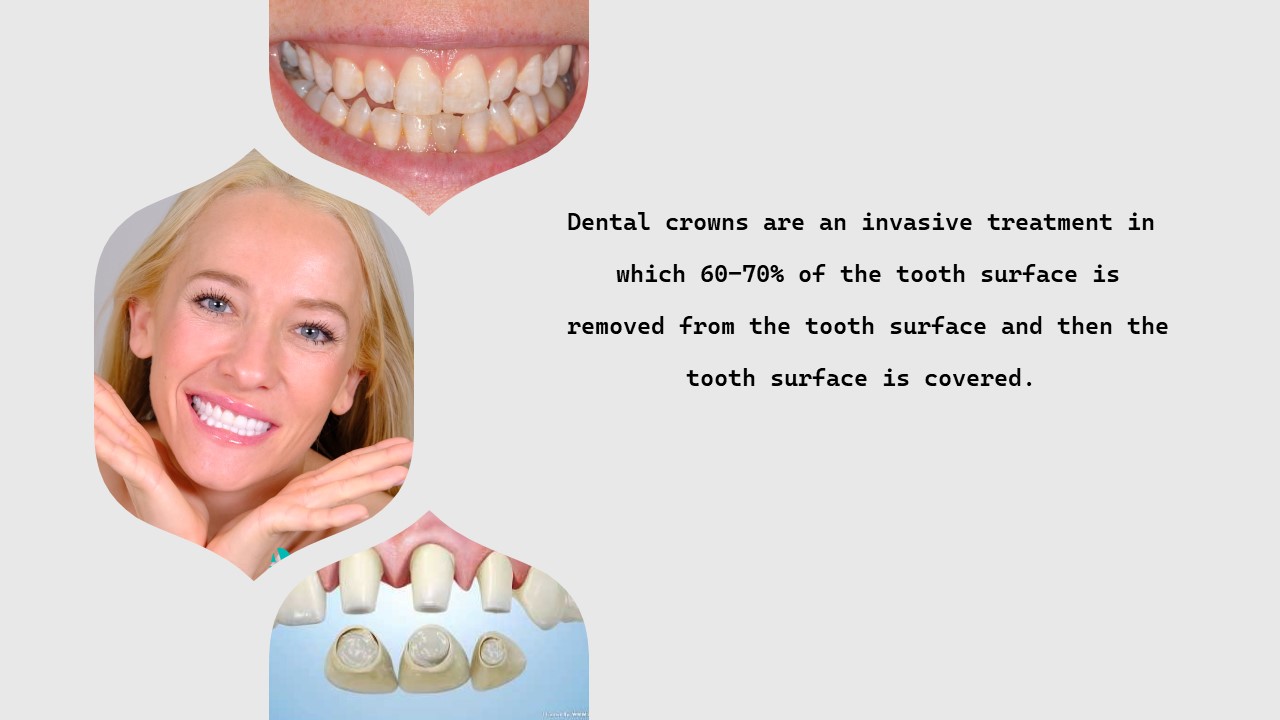
A young patient with many crowns experience faster tooth decay, especially in their forties, and regrets this treatment later in life. Here at Antlara Dental, we have turned away a lot of young patients who wanted invasive procedures like crowns for cosmetic reasons. Having said that, we do treat young patients who present with significant oral health issues.
No country is safe from being overtreated
Of course, as in Turkey, these excessive treatments remain a reality in many developed countries around the globe. In 2024, a study conducted in the United Kingdom found that in addition to dentists' treatment recommendations, the socioeconomic status of the area where patients live completely determines treatment outcomes. A key finding of the study was that dentists in areas with higher income rates were more inclined to provide cosmetic services compared to regions with lower income rates. (33.33% to 17.39%).
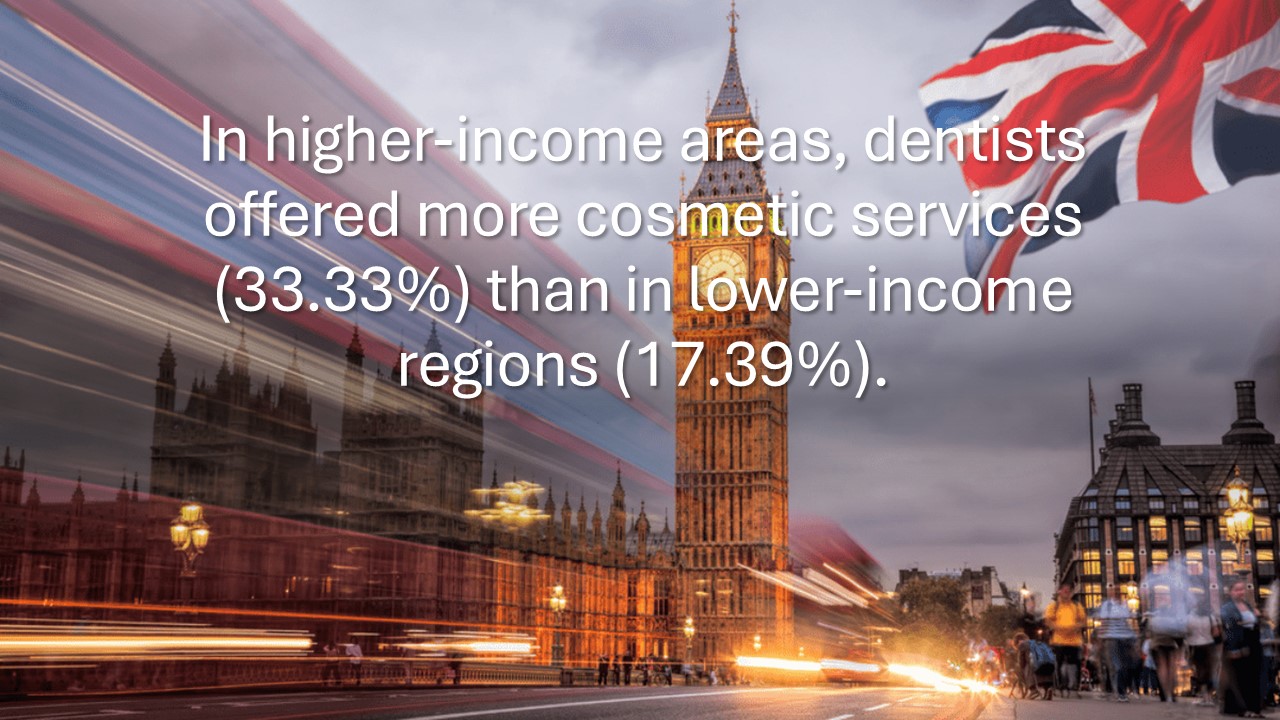
In a 2022 article in the Romania Journal of Stomatology, the authors identify business survival and financial gain as primary intentional factors for overtreatment in Romenia and some of the other countries. The author argue that funding medical services through public or private insurance systems aimed at maximizing physician and hospital autonomy can lead to for-profit organizations and overtreatment.
The study also refers to another study claiming American consumers have rated hospitals, doctors, and insurance as the lowest values for the money among the many goods and services they purchase. That USA
This is also the case in some of the world's most advanced healthcare systems, like those in Norway and Switzerland. According to a scientific study that surveyed Norwegian dentists, the majority of them feel that overtreatment is on the rise.
A 2020 scientific study conducted in Australia examined the potential over-treatment practices of private dental clinics and yielded significant findings. The study discovered that inadequate management of commercial aspects in private dental practices led to transactional relationships between consumers and providers, thereby undermining trust and professional altruism.
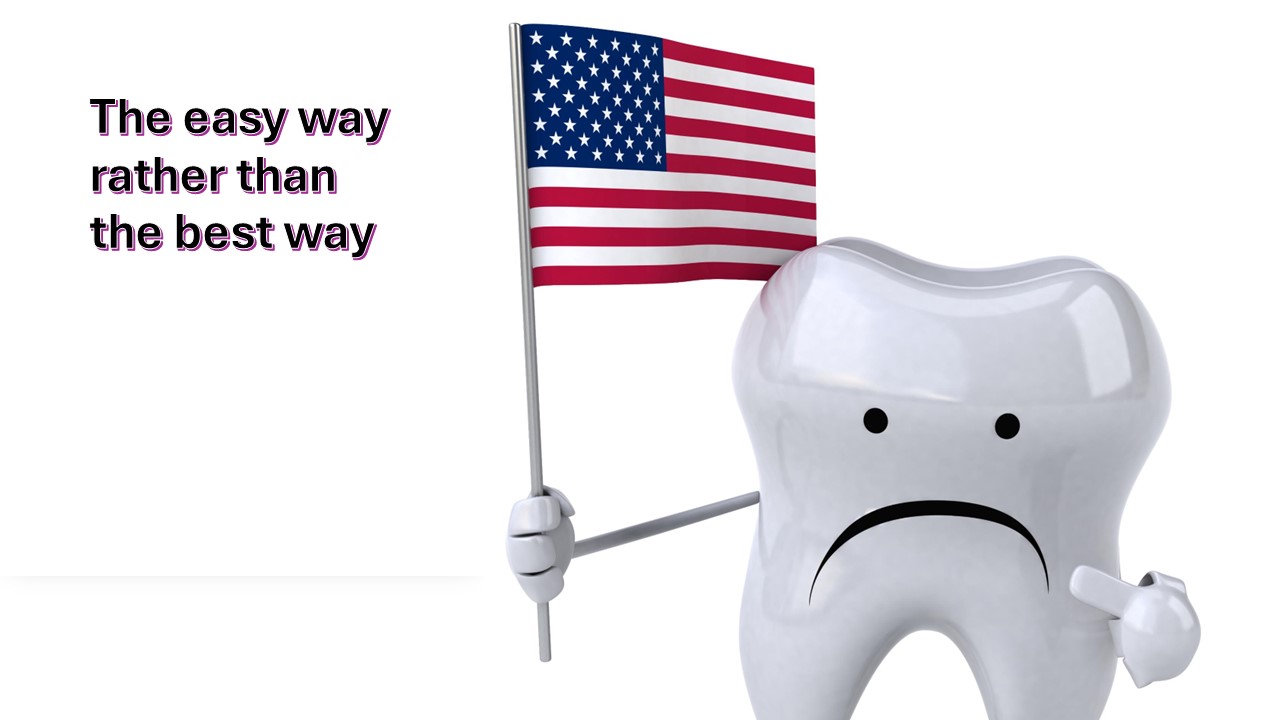
In the United States, patients frequently resort to overtreatment options because they are unaware of their options and communicate poorly with their dentist. To characterise the common practice of overtreatment in the USA, Ricardo Mitrani describes it as "the easy way rather than the best way."
Raise awareness of young people about dental treatments and their consequences;
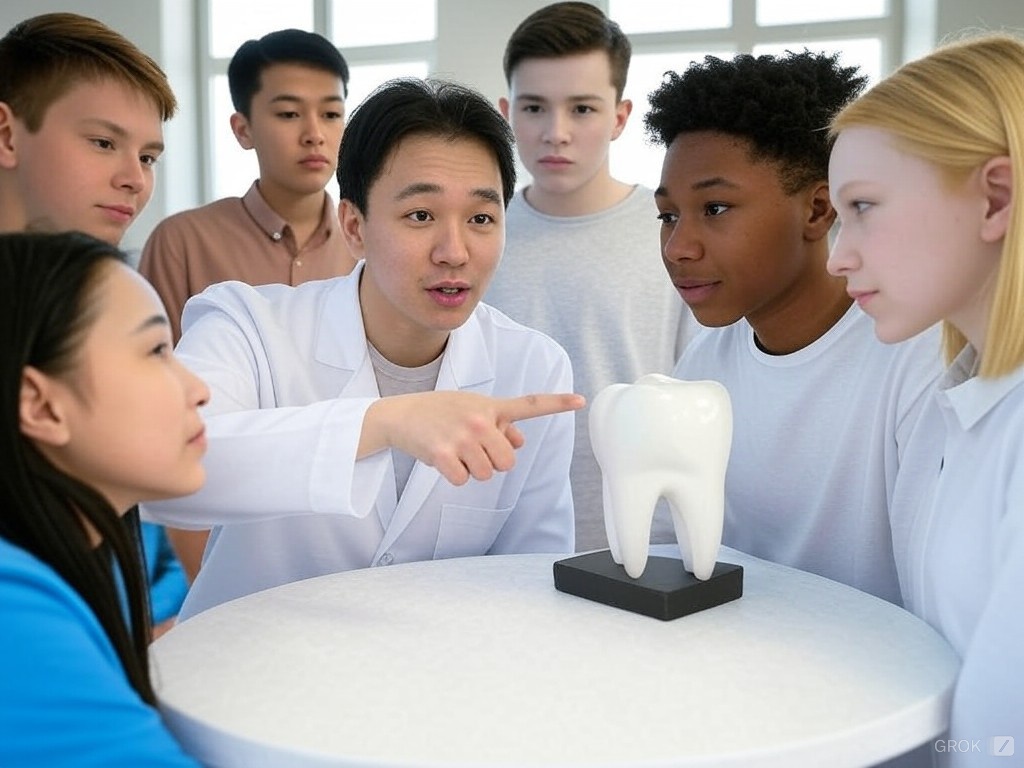
Especially in recent years, the increase of close-up videos on social media has led to an increase in the demand for extreme and invasive treatments in cosmetic dentistry. According to a cognitive study conducted in 2021, a significant portion of students demonstrated a tendency to overdiagnose and overtreat by supporting unnecessary tests and therapies.
We know from scientific research that there are many dental clinics around the world that take young patients for invasive treatments to satisfy these demands and, maybe, to reap more financial rewards. It would be unfair to pin the origin of this issue on just one nation; it affects many. To address the issue, it is necessary to bring people's attention to it.
The overtreatment clinics would have been named.
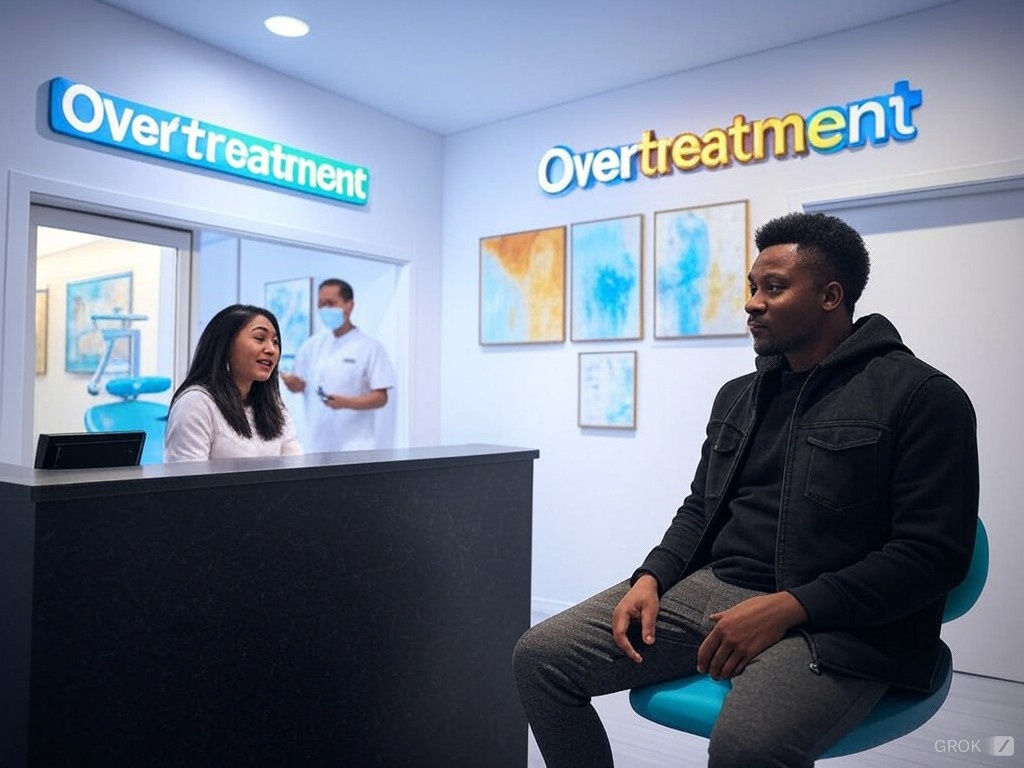
There is a Turkish proverb that conveys the idea that the true intention is not the apparent goal but to undermine the source: 'The aim is not to eat the grapes but to attack the winegrower.' Similarly, the purpose of these publications is to diminish interest in Turkey rather than to raise awareness.
If these publications were really aimed at victimising people, the names of the clinics that provide these treatments would have been disclosed, and legal solutions would have been sought for patients experiencing these victimisations in Turkey. Although Turkey is not a member of the European Union, all its laws, regulations, and practices are in line with both United Nations and European Union laws. If a piece of legislation conflicts with Turkish law and European Union law, the courts will apply European Union law. Signifying that obtaining a legal resolution for the victims is feasible.
The point we are trying to make is that no country is safe from being overtreated. Concerning overall health and cosmetic dental procedures, there is currently no established protocol for avoiding overtreatment. Thus, when considering their treatment options, patients should be aware of the risks associated with dental procedures.
The Reality Behind the Concerns
Bright Smiles | Antlara Dental Clinic
In Turkey, dental offices and practitioners typically do not endorse excessive procedures, even if they yield immediate benefits for the patient, due to a prevalent perception that such practices constitute a health risk. (On the other hand, intentionally or not, some Turkish dental offices overtreat their patients in order to maximise their profits, just as in any country.)
However, in many developed countries, especially in the United States, there is no unified agreement among dental professionals and clinics regarding the issue of overtreatment. Dentists and the broader scientific community have yet to reach a consensus on this matter. This lack of agreement is exemplified in a case study discussed by Hasegawa in the Texas Dental Journal. In this case, a patient was scheduled to receive crowns on all molars despite having no clinical or radiographic evidence of cavities, only minor deficiencies in the molars.
In other words, dental clinics in developed countries don't reject overtreatment practices not only on profit motives but also sociological grounds. Consequently, patients have a better chance of receiving trustworthy treatments in nations like Turkey, where overtreatment is also acknowledged as a cause for concern.
Turkish Authorities Keep a Close Eye on Cases of Malpractice
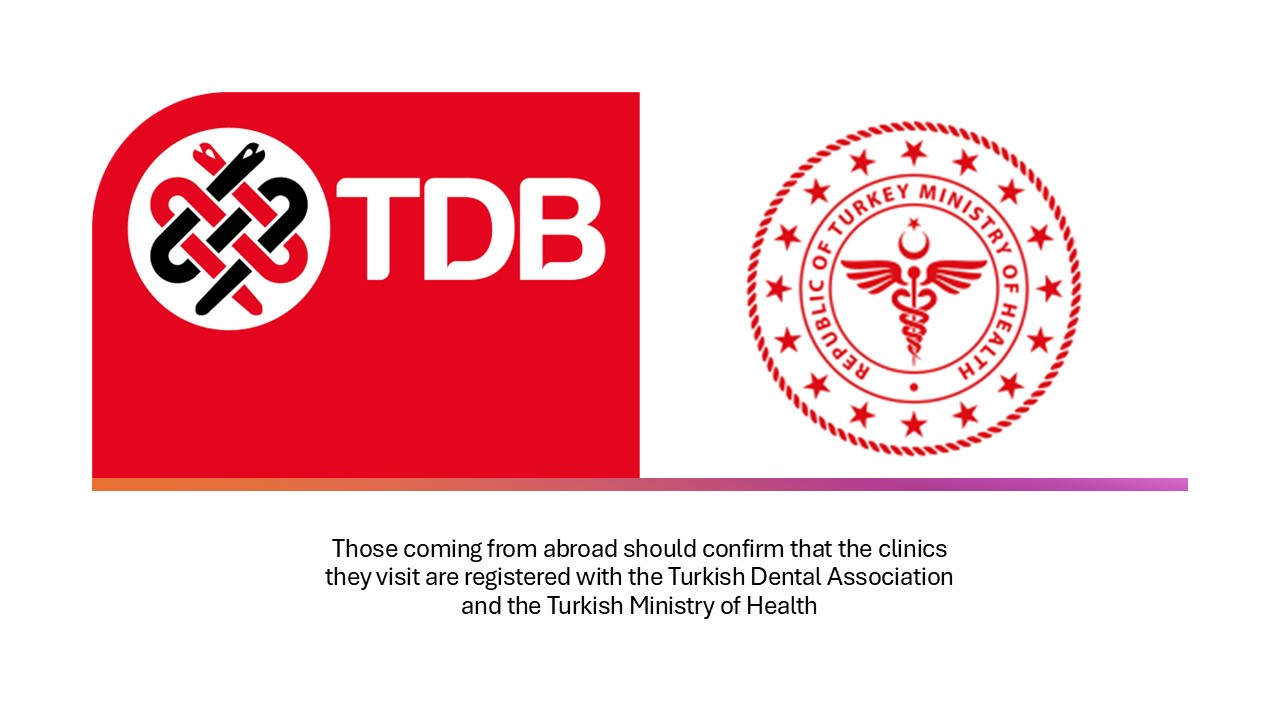
The head of the Turkish Dental Association, Tarik Ismen, says in an interview with Deutsche Welle that they are paying close attention to the calls in the UK regarding not to go to Turkey and taking action against the clinics that are causing the problem and doing more inspections. Ismen emphasised that those coming from abroad should confirm that the clinics they visit are registered with the Turkish Dental Association and the Turkish Ministry of Health.
Ensuring Safe Dental Procedures in Turkey
Since 2018, especially following the pandemic, there has been a significant increase in foreign patients seeking dental treatments abroad. As a result, countries like Turkey have had to swiftly adapt to the growing global trend of dental tourism.
Like many other countries, Turkey's government authorities were unable to respond quickly to this emerging crisis. As a result, particularly in 2020 and 2021, several travel agencies played a crucial role in directing European patients to dental clinics in Turkey through their partnerships. Although this is no longer the case today, the tourism companies that initially contacted patients during those periods ended up misleading them.
Advantages of Choosing Turkey for Dental Care
Dental care in Turkey offers numerous advantages, such as affordable prices, a substantial number of qualified dentists, and a diverse range of high-quality services. Here are a few of these benefits:
Cost-Effectiveness
Turkey distinguishes itself through the cost advantages it offers in dental treatments. Various procedures, including dental implants, orthodontics, and aesthetic dentistry, are available at prices up to 50% lower compared to countries in Europe and America. Additionally, the affordable treatment fees in Turkey allow patients to easily access complementary therapies necessary for their treatments without putting a strain on their budgets.
High-Quality Materials and Techniques
Dental clinics in Turkey use high-quality materials that meet international standards. Produced in ISO 13485 certified facilities, dental materials are at the forefront of reliability and durability. In addition, dentists in Turkey are adopting and practicing the latest dental technologies. Advanced technologies such as digital dentistry practices, 3D tomography, CAD/CAM technologies, and laser dental treatment make treatment processes faster and more effective.
Comprehensive Care Packages
Turkey provides comprehensive all-inclusive care packages for international dental patients, covering treatment, accommodation, and transportation. These packages typically include airport transfers, hotel bookings, and treatment planning. So, patients can get the care they need in a setting that is conducive to healing, and they can access all the resources they need in one convenient location.
FAQ
The following are some of the most asked questions and their corresponding answers regarding the safety of dental treatment in Turkey.
Is getting dental work done in Turkey safe?
In terms of both tourism and health tourism, Turkey is one of the most secure nations. In addition to being one of the biggest tourist hubs in Europe, Antalya is the most popular tourist destination in the country. Also, Turkey boasts a robust and dependable infrastructure for visitors in every way.
How much can I save by getting dental treatment in Turkey compared to my home country?
On average, you can save 50% to 70% if you live in the UK. The amount you save, though, will change based on where you call home.
What qualifications do Turkish dentists have?
Clinics providing dental care in Turkey are members of both the Turkish Dental Association and the Ministry of Health. Additionally, any clinic that caters to health tourists must possess a certificate that has been authorized by the Ministry of Health. Hence, it is advisable to inquire about the presence of these certificates when contacting a Turkish clinic.
How do I choose a reputable dental clinic in Turkey?
In recent years, Turkey has seen a dramatic growth in the number of dental tourism facilities. Here are some steps you may take to narrow down the hundreds of clinics to the best one.
- Check out review sites like Google, Trustpilot, and Proven Expert to see how many people have spoken well of the clinic and how many reviews there are overall.
- Think about how many dentists are on staff and how much expertise they have.
- Watching the testimonial videos will help you determine if the clinic's treatments meet your expectations.
- Assess the clinic's package programs. Find out if the therapy takes care of all your expenses, such as getting you from the airport to your lodging and transportation.
- Check the clinic's aftercare services and the availability of a formal guarantee.
- Finally, you can check the clinic's testimonial videos and before/after photos to determine if the treatments are typical or aggressive. Ensure that the clinic you choose meets all your needs and standards before making a decision.
What should I expect during the consultation process in Turkey?
The consultation is the first step in deciding what kind of treatment a patient needs. A preliminary evaluation is conducted in the patient's home country for patients traveling from other countries. After a thorough oral screening and x-ray examination, though, a final consultation can be scheduled at the clinic. Ensuring that the patient communicates their expectations to the dentist during the consultation process is crucial. Regarding this matter, it is consistently beneficial to select clinics that comprehend your objectives and tend to patients in a similar age range and demographic.
Are the materials used in Turkish dental clinics of high quality?
On their websites and treatment choices, the clinics openly state the products they utilize. Clinics in Turkey that cater to dental tourists—most of whom are from outside the country—use only the best dental products, as is evident from their websites. For dental implants, for instance, almost each clinic favors industry heavyweights like Nobel BioCare and Straumann. Nonetheless, it is beneficial to discuss this matter with the clinic in advance of treatment in order to have a range of pricing possibilities.
Is post-treatment care available after I return home?
There is a severe lack of clinics in Turkey that provide patients with aftercare services and a thorough written warranty for their procedures. At Antlara Dental, we're proud to offer aftercare and complete warranty options for all of our procedures. Our network of partner clinics and local clinics in the area allows us to provide this, and we make sure to document it all.
How long does it take to travel to Turkey for dental treatment?
Turkey is easily accessible by airline from a number of European capitals. The majority of Turkish Airlines flights depart from Istanbul and Antalya. Dental tourism in Turkey is centered on these cities as well. The typical travel time from Germany and Italy is 2.5 hours, whereas the average travel time from the UK might range from 3.5 to 4 hours.
Can I combine dental treatment with a vacation in Turkey?
Antalya and Izmir, two popular Turkish vacation spots, attract a disproportionate share of the country's dental tourists. With its abundance of world-class attractions, including five-star hotels and amusement parks, Antalya has quickly become one of Europe's most popular vacation spots. You will feel more at ease and have a more pleasant dental experience in Antalya, thanks to its natural beauty, sandy beaches, and mild waters.
What payment options are available for dental treatments in Turkey?
Clinics in Turkey typically accept a variety of payment methods. You can usually pay using options like Visa and MasterCard, or you can pay at the door. Payment plans or other forms of financing are also available at some medical facilities. It is wise to discuss payment options with the clinic beforehand to avoid any confusion.
Will I need to take time off work for my dental treatment in Turkey?
The intricacy of the treatment determines the amount of time off that is necessary. While less involved treatments may only take a few days, more involved procedures like orthodontics or implantology can take a week or more. Typically, clinics will assist patients in anticipating the amount of time required for therapy.
Are there any language barriers when getting dental treatment in Turkey?
Several dental tourism clinics employ multilingual staff members who can speak English, German, and Russian. Dentists at Antlara Dental are fluent in several languages and can converse with patients face-to-face.
What documents do I need to bring for dental treatment in Turkey?
Generally, you will need a valid passport, dental records or x-rays if you have any, and specific medical documentation regarding your dental health. In addition, some clinics may require additional documents for pre-treatment. It will be useful to contact the clinic before the treatment to find out the necessary documents.
How do I ensure my privacy and data security with Turkish dental clinics?
When it comes to protecting the privacy of their patients' medical records, reputable medical facilities follow all applicable international guidelines. To learn more about the clinics' data processing and security measures, you can look over their privacy policies.
What is the best time of year to travel to Turkey for dental treatment?
Turkey is one of those places that is beautiful year-round. But if you're looking for a more pleasant trip with mild weather and fewer people, try visiting in the summer (May-August) or fall (September-November). Taking a trip during these times might enhance both your healing process and your sightseeing experiences.
Can I get a second opinion from a Turkish dentist?
Yes, many clinics encourage you to get a second opinion and provide detailed explanations about your treatment plan. By getting opinions from different clinics, you can determine the most appropriate treatment option.
Are there any hidden costs I should be aware of when getting dental treatment in Turkey?
Hidden costs are prevalent in nations such as the USA, UK, and Germany. In these countries, dental operations, including additional x-rays, anesthetic, and cleanliness treatments, are subject to extra expenses due to the high fees sought by dentists. In Turkey, these treatments are usually included of the treatment costs, so they won't cost you anything extra. However, if your secondary therapy is considerably more expensive treatment, you may be liable for additional payments.
How do I arrange accommodation and transportation during my stay in Turkey for dental treatment?
Clinics will prearrange all housing and transportation requirements for the patient based on the treatment's scope. Ensure that these challenges are thoroughly addressed in your initial discussions with the clinic and incorporated into the treatment plan.
What should I do in case of a dental emergency while in Turkey?
Reputable clinics offer assistance for crises and facilitate connections with local emergency agencies. Furthermore, should you encounter an unforeseen dental issue on your travels, you may reach out to the clinic for prompt assistance. It is advisable to obtain travel insurance and possess essential contact information for emergencies.

